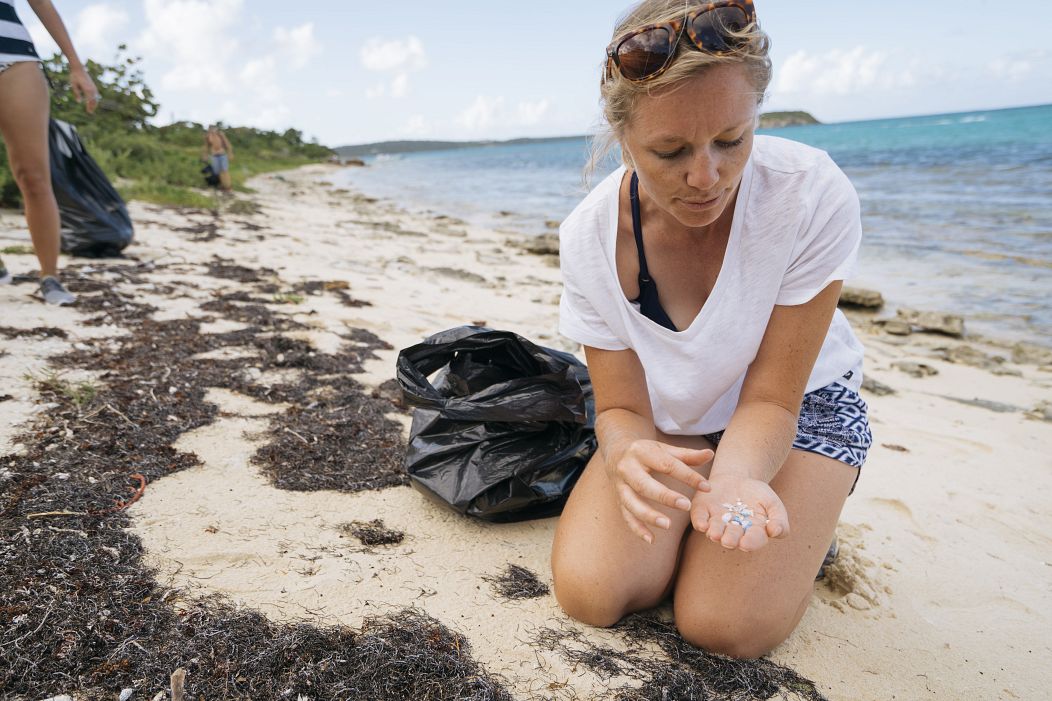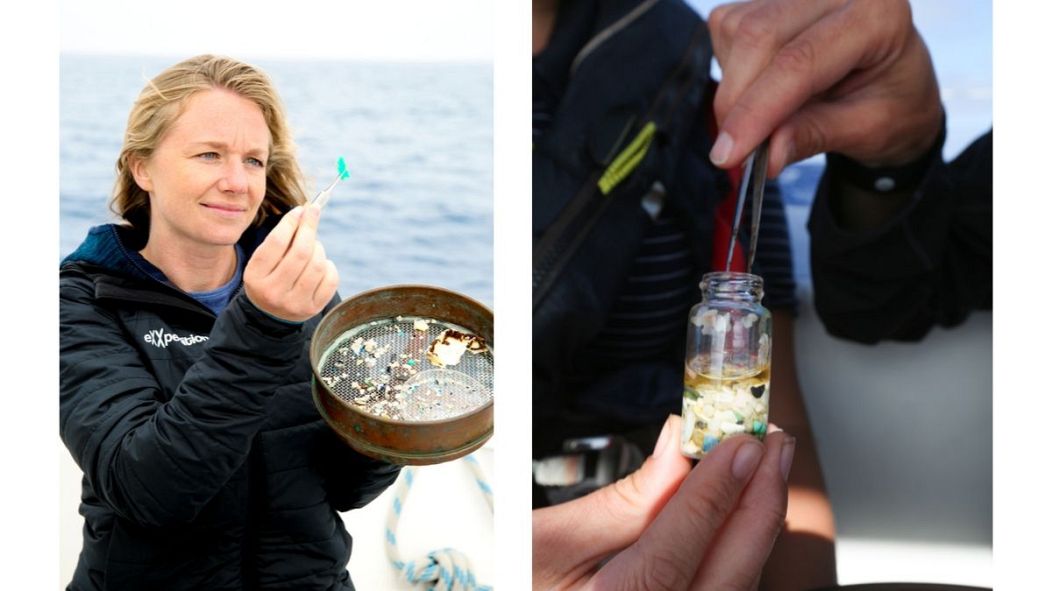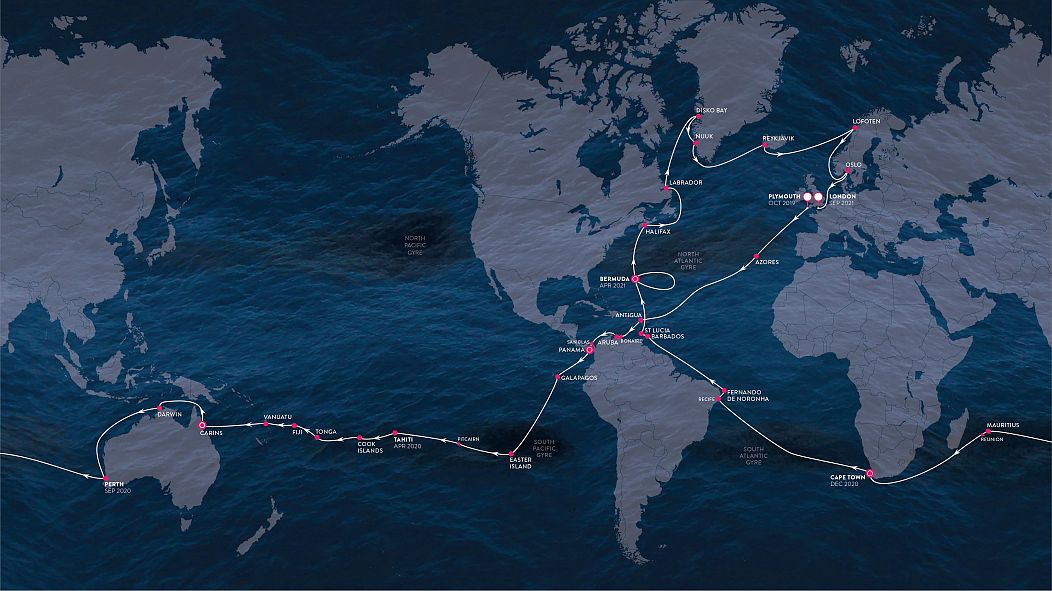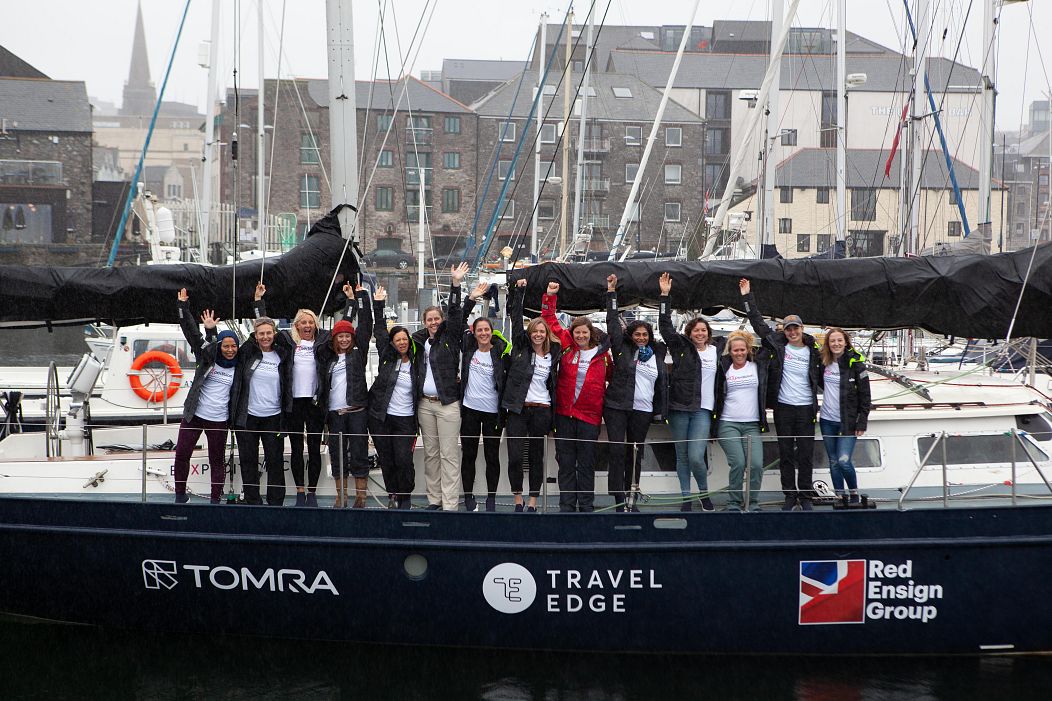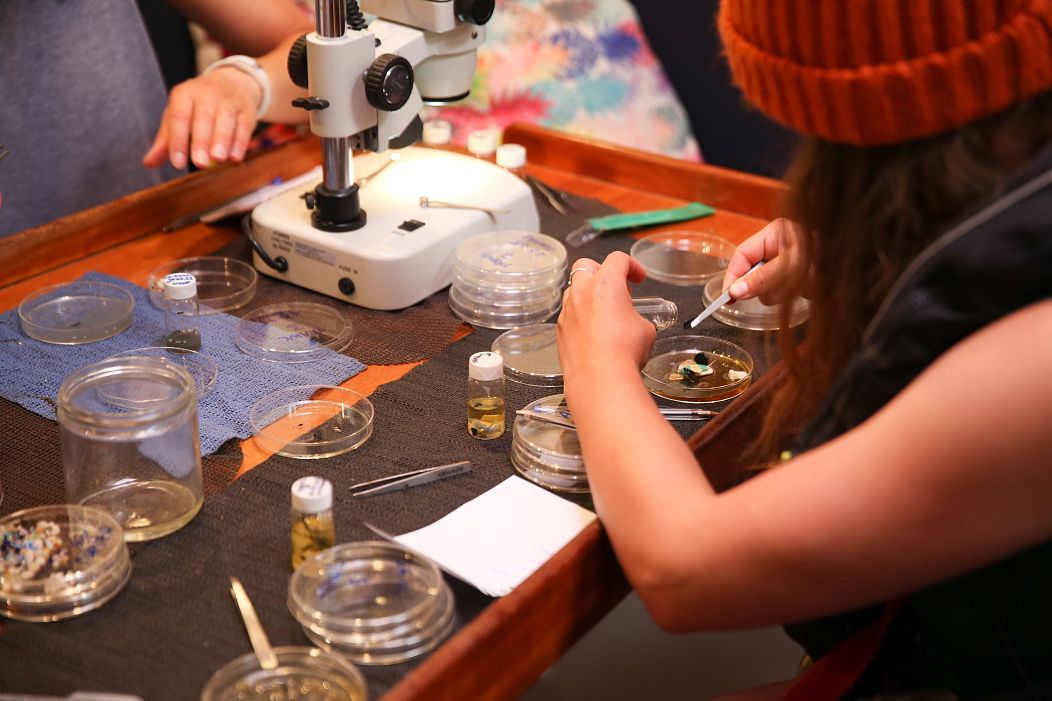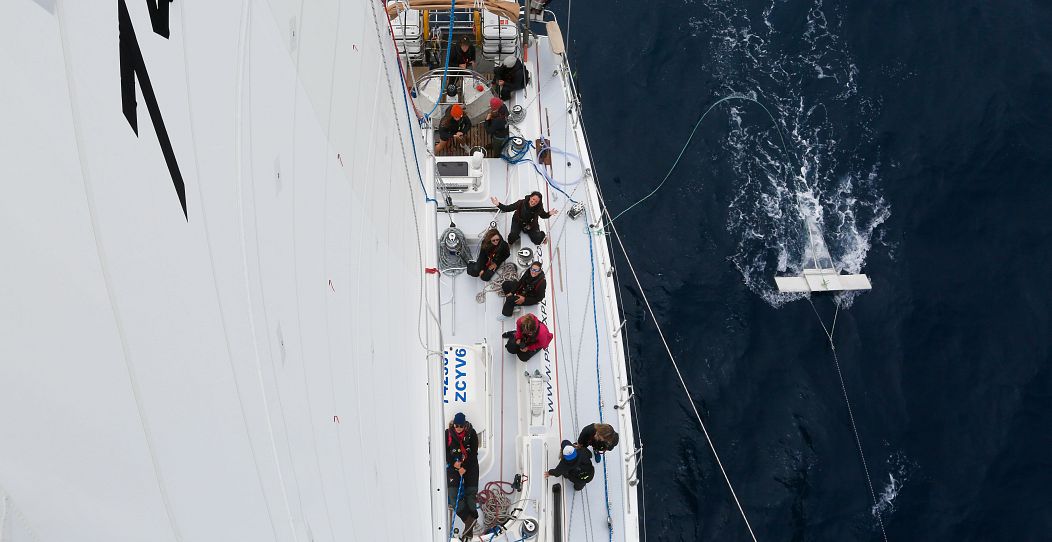Over two years and more than 38000 nautical miles, a 73ft yacht will carry hundreds of women on a groundbreaking research mission.
In 2007, Emily Penn was on a boat travelling from England to Australia to start a job as an architect. With nowhere to shower on board, she jumped off the bow of the boat into the water and came to the surface to find herself surrounded by pieces of plastic. This was the pivotal moment, 800 miles from land and encircled by man-made waste, that galvanised Penn into action.
Just a few years later after educating herself about the way in which our refuse finds its way into the sea, she found herself on a trip around the world to study plastic pollution. Penn visited the world’s five ocean gyres, currents that collect waste like a giant plughole and what she found surprised her. Whilst some of the waste remained tangled into floating islands so large they couldn’t pull them aboard the boat, much more was breaking down into minuscule pieces.
Trying to clean these pieces up is almost impossible and their small size means that they can end up in the food chain. A study published in the journal Environmental Science and Technology found that we adults eat somewhere in the region of 50,000 of these micro plastics each year in everything from salt to seafood to bottled water. Penn was astonished and went for a blood test to check if chemicals used for things like making clothing flame retardant were making their way into her body.
“It turned out I had 29 of these 35 toxic chemicals inside my body,” she says, “a lot of them were endocrine disruptors, something that mimics hormones and stops those important messages moving around our bodies”. These endocrine disruptors can be a big problem for female reproductive health, even potentially being passed on to children according to the US Institute of Environmental Health Sciences. As it was likely that these endocrine disruptors were having an impact on women’s health, Penn started to think about inspiring female ambassadors for change.
Read More | Javier Bardem takes over Times Square to demand ocean protections
Sailing through all weathers
Penn’s first research mission took place in 2014 as she crossed the Atlantic with a crew of 14 to find answers about how the health of the environment was linked to the health of our bodies. Surrounded by a group of women from 10 different nationalities, supporting each other through seasickness and the trials of the ocean, she began to think that they might be able to help change the world. A few excursions to take water samples, a voyage through the North Pacific gyre; Penn was drawing attention to this all-female mission to spread stories of the ocean plastic problem.
She began to get requests to join these trips but knew the way they were currently operating couldn't accommodate all of the inspirational women interested in taking part. So, she decided to plan what would be eXXpedition’s most ambitious project yet. Plotted in the small hours of the morning on a GPS device with her team she created the route for a 730 day voyage around the world.
On the 8th of October, Penn and the first crew of 14 set off from Plymouth, UK on number 1 of 30 legs which will eventually see 300 different female crew members join the cutting edge scientific mission.
Kirana Agustina is one of the team members for this first section of the voyage which will see the 73ft vessel travel from the UK 1,200 miles out into the North Atlantic Ocean to the Azores. A post-graduate student from Indonesia, she hopes that she can help inspire action against ocean pollution in a country with incredibly unique waste challenges. Made up of 18,000 islands, Indonesia sits in the Indonesian Throughflow, a current through which 90% of all plastic found in the sea is driven. “Coming from an island nation, we are very disconnected from the ocean,” she says at the launch of the voyage.
As well as better connecting her own country with its oceangoing heritage, she hopes to educate other outside of her homeland about the reasons for Indonesia’s ranking as the world’s second-largest polluter, “We have an issue with the mismanagement of plastic but Indonesia is also an importer of global plastic waste”.
Read More | My eco-job: I run a coral nursery in the Maldives
Researching ocean plastic waste
The voyage isn’t just about empowering women to lead others in tackling this environmental crisis, though. Throughout the trip important research will be carried out on both sea and land. Using a combination of surface trawling, sampling from the layer just below this and sediment sampling the team hopes to build a more comprehensive picture of how plastic has made its way into every part of this ecosystem.
The samples taken by each team will then be used by researchers at eXXpedition’s academic partner, University of Plymouth and around the world. Projects include an attempt to map how marine plastics end up being dumped by currents in the gyres they will be visiting by the mission's science lead, Dr Winnie Courtene Jones.
“Going around the world provides a really unique opportunity to get such a huge global data set,” she says adding that they are hoping that taking samples both from the surface and at deeper levels will help to paint a better picture of how our waste moves and accumulates. "From that [data] we will be to work out where sources are and also provide the evidence of how much there is to develop evidence based and effective solutions to combat this".
Data like this will be passed on to organisations such as eXXpedition sponsor, Tomra, a Norwegian company which makes sensors that detect materials to make recycling as effective as possible. This is just one of the potential solutions that are expected to come out of this groundbreaking mission around the world.
If you want to follow Emily Penn and the hundred of other women joining eXXpedition on their voyages Round the World you can check in with their vessel tracker here.
There are still spaces available on eXXpedition's Round the World Trip, if you'd like to apply to join the team researching ocean plastic pollution you can here. No sailing experience needed!












